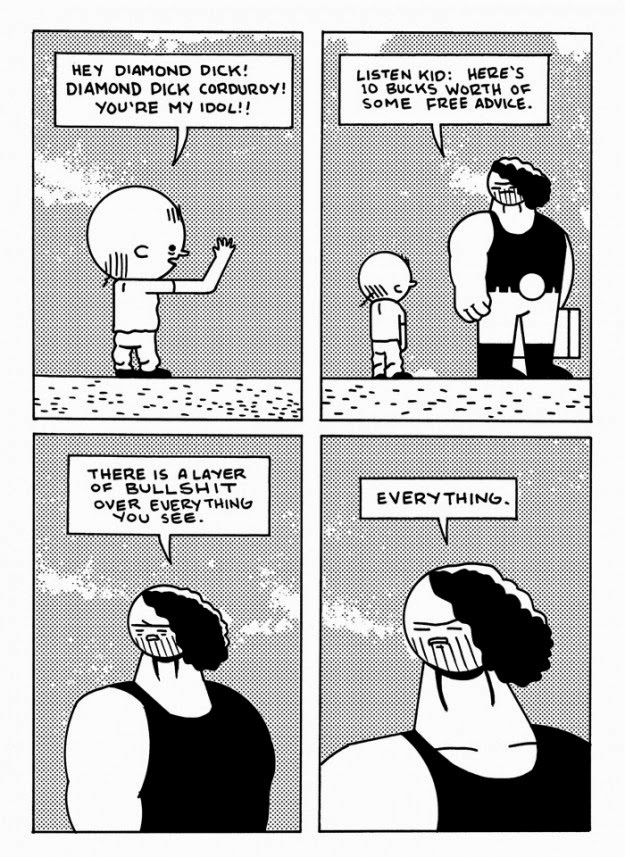Box Brown, Retrofit Comics, Philadelphia (USA), February 2014, 48 pages, black and white, 7" x 10", $ 6.
First releases of the new year for Retrofit Comics from Philadelphia, which starts its rich publishing schedule with Number 1 by Box Brown and the long-awaited Wicked Chicken Queen by Sam Alden, that will be followed in the next months by works of Madeleine Flores, Zac Gorman, Josh Bayer, Antoine Cosse, Ben Constantine, Anne Emond, Niv Bavarsky, Jack Teagle and Akino Kondoh. Let's start for the moment with Number 1, while in some days we'll talk about Alden's comic. For those of you who still don't know, Brown is the mastermind behind Retrofit Comics and he has recently realized the one-shot Beach Girls and the series Softcore, he was published in Italy by Lök Zine with the book Inside the Box and will debut in May for First Second Books with the graphic novel Andre the Giant: Life and Legend.
Aside from the two final pages entitled The Documentarian, Number 1 is fully occupied by Kayfabe Quarterly, a story based on the concept of kayfabe, typical of wrestling (clearly a passion of the author), used for analyzing the issues of fiction in everyday life and of people hiding behind masks. However, this isn't the only focus of the story, in fact the main merit of Brown is to give up a conventional storytelling to realistically outline the mental processes of the protagonist, inviting the reader to follow not only his personal history but the whims of his psyche as well. Initially Virgil is a young and naive wrestling fan, but after a few pages begins to see more critically his idols, his reference points and in general any authoritative figure.
He founds a magazine that becomes an instant success, takes employees, expands his business, doubts his father, listens with skepticism to the religious speeches of his brother, reaching a conclusion that leaves more questions than answers, as suggested by the headlines from Kayfabe Quarterly's last issue.
He founds a magazine that becomes an instant success, takes employees, expands his business, doubts his father, listens with skepticism to the religious speeches of his brother, reaching a conclusion that leaves more questions than answers, as suggested by the headlines from Kayfabe Quarterly's last issue.
The drawings and the narrative are aseptic and sometimes unsettling, with round heads that recall aesthetically The Peanuts but who are the protagonists of complex and sometimes raw stories. Brown doesn't try to attract immediately and to please the reader, but he conquers him thanks to a personal and well-defined style that is growing comic after comic.





Nessun commento:
Posta un commento